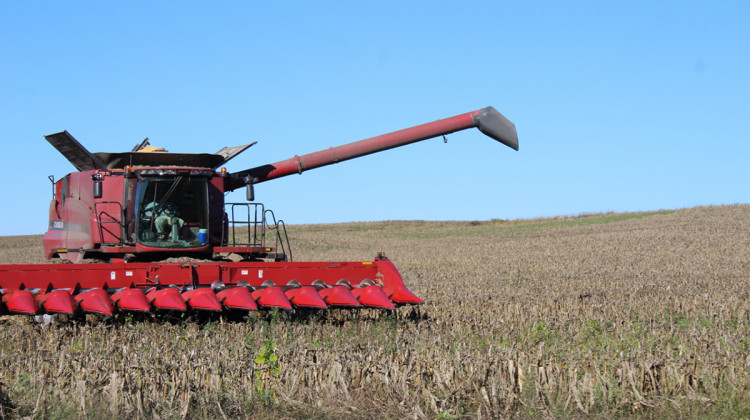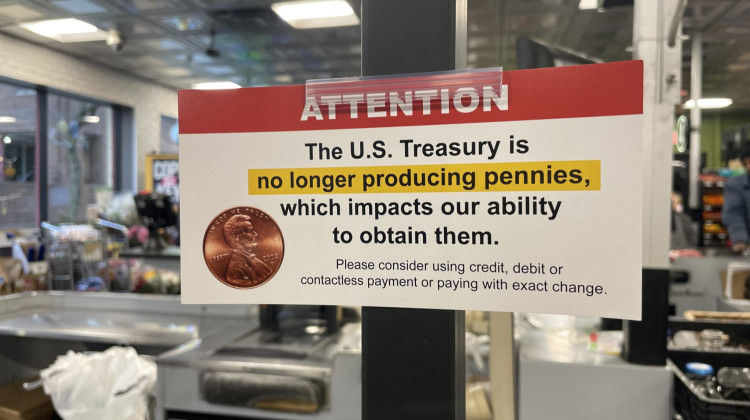
Indiana food producers may have lost more than an estimated $500 million during the pandemic.
FILE PHOTO: Annie Ropeik/IPB NewsIndiana food producers potentially lost more than an estimated $500 million during the pandemic. A report examines supply chain issues due to COVID-19 and how the state could prevent future losses in the industry.
An estimated 2,500 Hoosiers who work in agriculture tested positive for COVID-19 early in the pandemic, according to the report. Many were employees of meat processing plants.
A limited number of plants across the U.S. handle most meat processing. When some had to temporarily shut down or slow down production due to COVID-19 cases among workers, it caused a strain.
Purdue agriculture economist report co-author Jayson Lusk said that left farmers with animals ready to be sold but fewer ways to get their commodities to consumers at the store.
“So I think one of the difficulties was, if you lost your supplier, because they were shut down for some reason, or you lost a buyer, where do you turn next?, said Lusk. “And what we realized is, there may be some need for contingency planning. And some of that is building out your network.”
The study suggests automation and an increase in meat processors could prevent similar supply chain issues in the future.
The report also shows that the government shutdowns during the pandemic shifted consumer spending from restaurants to grocery stores. Researchers found that spending on food away from home – including restaurants – decreased by more than 60 percent during the lockdowns in 2020.
And while farmers were producing plenty of food, many grocery store shelves were empty.
Lusk said another challenge was getting commodities like milk and eggs properly packaged for retail shelves.
“They might think, let's just take the eggs we've sent to restaurants – instead send them to the grocery store,” he said. “That sounds all fine and well until you realize the way we send eggs to restaurants is different than the way they go to grocery stores. And there literally were things like just not enough cartons sitting around to get eggs from one supply chain to the other.”
Lusk said e-commerce was already growing, but COVID-19 has accelerated it and is expected to transform how people purchase food even after the pandemic.
The report was commissioned by AgriNovus with researchers from Purdue University and EY Parthenon consultants.
Contact reporter Samantha at shorton@wfyi.org or follow her on Twitter at @SamHorton5.
 DONATE
DONATE






 Support WFYI. We can't do it without you.
Support WFYI. We can't do it without you.